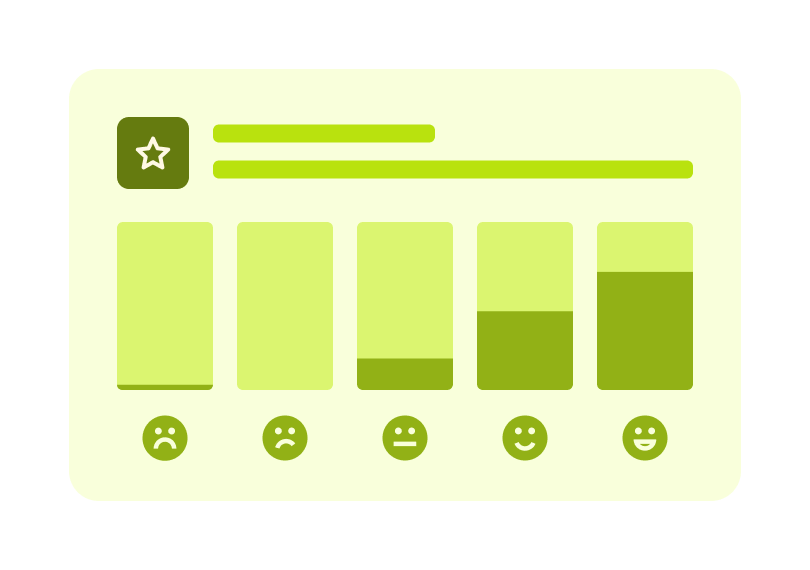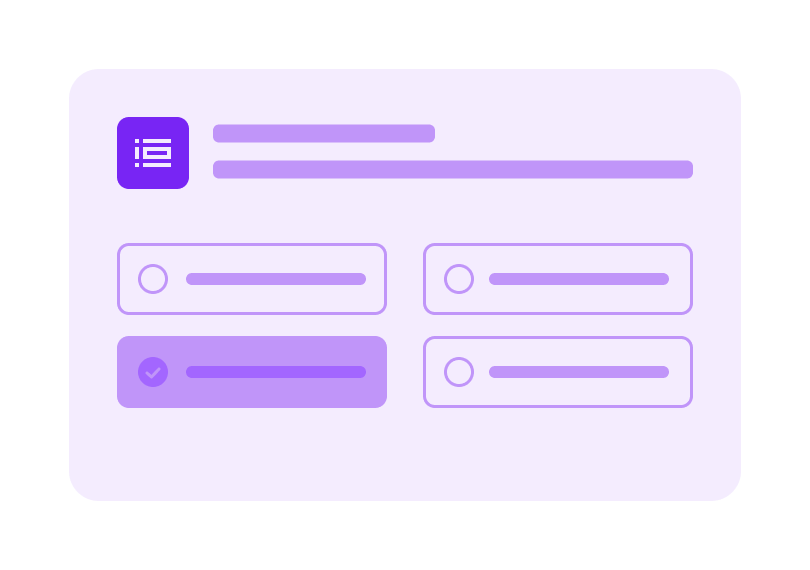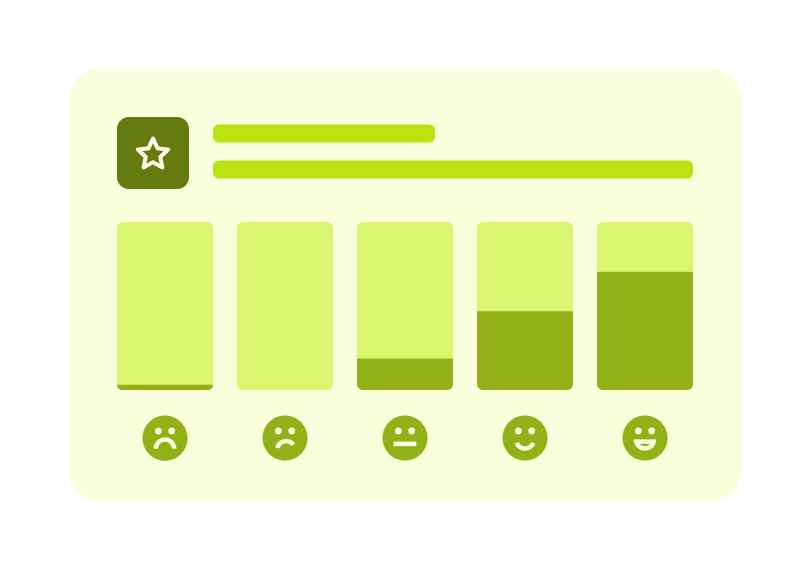Satisfaction Survey Templates
A satisfaction survey template can help you gather actionable feedback, capture important pain points, and improve both your product and customer lifecycles. Select one of our pre-built templates to get started (and keep your customers happy).

Get first impressions on new features
Product • Satisfaction Survey
Get first impressions on new features
Get early feedback on user’s experience of new builds

PRO
Test new feature satisfaction
Product • Feedback Survey • Satisfaction Survey
Test new feature satisfaction
Pinpoint any challenges users may have that require attention and iteration

Run a product satisfaction survey
Research • Product • Satisfaction Survey
Run a product satisfaction survey
Measure how satisfied users are with your product

PRO
Measure onboarding success
Product • Satisfaction Survey • Marketing
Measure onboarding success
Improve your onboarding experience
Best practices for creating a satisfaction survey
While the questions in your satisfaction survey will be unique to your context, here are some general tips to keep in mind when crafting your survey to keep users engaged:
1. Align with your stakeholders
Always start with a plan to align on the goals of the survey and what research questions you hope will be answered.
2. Set the right expectations with your team
Surveys are great for gathering thoughts and opinions but not so much for understanding behaviors, and sometimes they make it difficult to dig deeper into insights. If your team is interested in collecting behavioral data, methods such as usability tests or quantitative tests are a better fit.
3. Don't miss the pilot test
Like any other research method, always test your plan with someone before launch to ensure there are no confusing parts.
4. Be intentional
Avoid bombarding your participants with surveys; make sure someone keeps track of when they get sent and how often. For example, if you run large customer satisfaction surveys, you should limit this to once a quarter at the most. For feature-specific surveys, try to send these to different customer segments at intervals to avoid bombarding the same people over and over again.
5. Make it valuable
Highlight the intention and goals of the survey so the respondents feel like there's something in it for them to give you their time.
💡 For more tips on how to keep users engaged with your survey, visit our UX Survey guide
Frequently asked questions
Why is product feedback important?
Why is product feedback important?
There are many reasons product feedback is so important, but broadly speaking there are three main benefits:
- Improving customer experience and satisfaction
- Prioritizing the product roadmap and validating new ideas
- Building a successful product
What can satisfaction survey results be used for?
What can satisfaction survey results be used for?
With Maze, you can view results of your satisfaction surveys in automated, shareable reports. So whether your Product team needs to view feedback on a new feature, or your Customer Support team deserves praise for helpful service, making key learnings accessible to everyone couldn’t be simpler.




